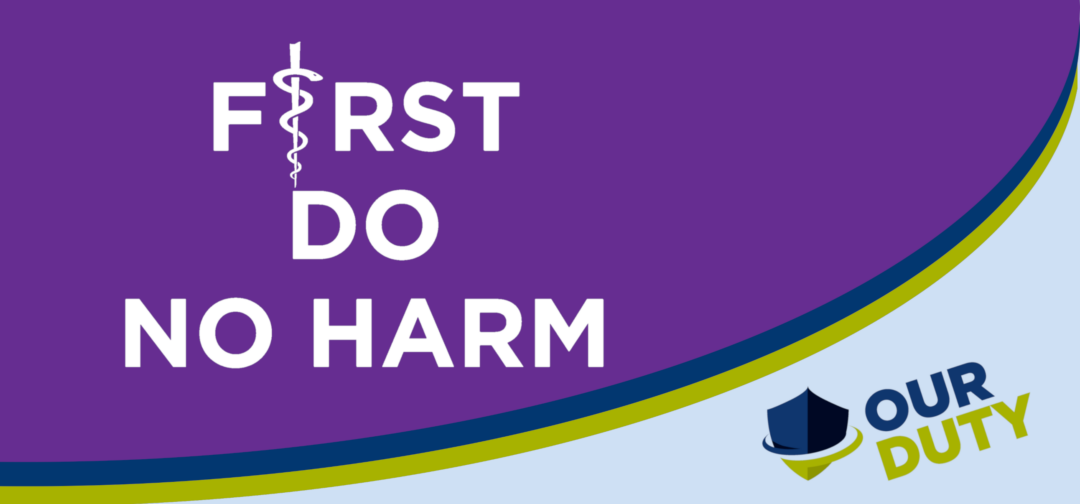Deontological (duty-based) ethics are concerned with what people do, not with the consequences of their actions. Do the right thing. Do it because it’s the right thing to do. Don’t do wrong things. Avoid them because they are wrong.
Duty based ethics is often seen as a series of rules which it is our duty to follow. In healthcare, these often come in the form of professional standards or duties. These rules, or duties, outline medics’ obligations to their patients, to their peers and also to themselves. They can be seen as the tenets of conduct and professionalism. A simple and universal example of this in practice is the professional duty to ‘first, do no harm.’
Our Duty is named after this ethical principle, as well as the concept that adults have a duty of care to safeguard young and vulnerable people in their care.
It is sometimes the case that doing the right thing can have negative consequences, as in the example given in this video clip. So, sometimes, it is more appropriate to adopt a ‘consequentialist’ approach – i.e. to be more concerned with the consequences of our actions than their moral rectitude. Although, it could also be argued that the right thing to do takes into account the consequences of one’s actions.
Nevertheless, in “gender medicine”, doing the right thing is always right. The consequences of not behaving ethically, say by lying about someone’s sex, or allowing harm to prop up an identity, are always negative. In “gender medicine”, behaving ethically is always the right thing to do.
For more information on duty based ethics follow the links below:
https://plato.stanford.edu/entries/ethics-deontological/

